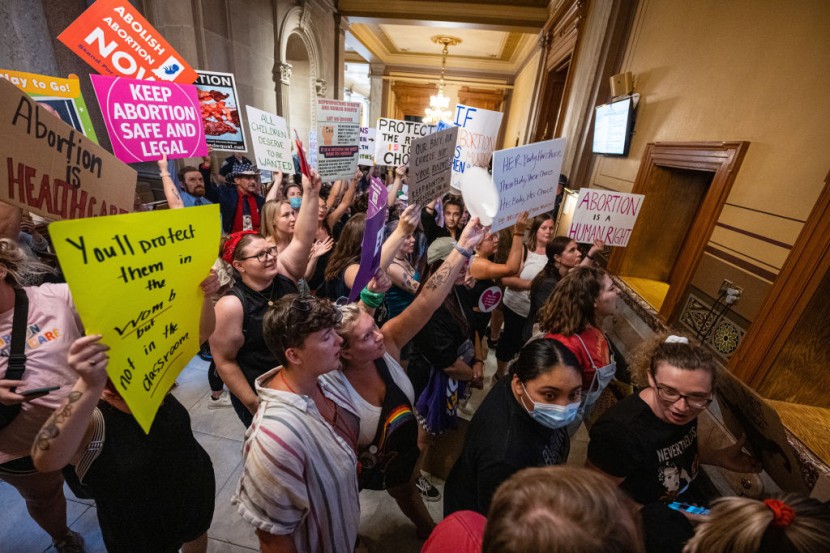
Indiana officials have passed and the governor signed a near-total ban on abortion on Friday, making the state the first in the country to do so following the Supreme Court's decision to overturn Roe v. Wade.
The decision overcame division among Republican lawmakers and protests from Democrats to approve sweeping new limits on the procedure with limited exceptions. The passage of the law came just three days after Kansas voters, another conservative Midwestern state, overwhelmingly rejected an amendment.
Indiana's Near-Total Abortion Ban
The amendment would have stripped abortion rights within the state's Constitution, which is a result typically seen as a sign of unease with abortion bans. Indiana's new law also comes despite some Republican lawmakers opposing the measure for going too far and others voting no because of its exceptions.
The decision to end Roe was the culmination of decades of work by conservatives, which opened the door for states to severely restrict abortion or ban it entirely. Some regions have already prepared in advance with abortion bans that were triggered by the fall of Roe, as per the New York Times.
Furthermore, some lawmakers in other conservative states said that they are considering more restrictions on the procedure. However, in the first weeks since the Supreme Court's decision, Republicans have moved slowly and struggled to speak with a unified voice on what would come next.
Read Also : Joe Biden Pushes Directive To Help Women Access Abortion: "I told you I wouldn't back down"
South Carolina and West Virginia lawmakers have weighed but taken no final action on proposed bans on abortion. On the other hand, officials from Iowa, Florida, Nebraska, and other conservative states have so far not taken legislative action.
According to the Washington Post, Indiana's new abortion bill will go into effect on Sept. 15 and would only allow abortion in cases of rape, incest, lethal fetal abnormality, or when the procedure is necessary to prevent severe health risks or death to the mother.
Support and Opposition to the Procedure
Shortly after the signing of the bill, Indiana Gov. Eric Holcomb said in a statement that he had "stated clearly" following the fall of Roe that he would be willing to support anti-abortion legislation. Furthermore, he highlighted the "carefully negotiated" exceptions in the law, which he said would address "some of the unthinkable circumstances a woman or unborn child might face."
Immediately after the reveal of the law's passage, abortion rights organizations rebuked it, with the president and CEO of Planned Parenthood Federation of America, Alexis McGill Johnson, arguing the vote "was cruel and will prove devastating for pregnant people and their families in Indiana and across the whole region."
The vote on Friday in the state House followed an emotional and sometimes contentious debate during which protesters' cheers and jeers could be heard amid lawmakers' speeches. GOP House Rep. John Jacob of Indianapolis, who is a supporter of a total ban on abortion, said he would not vote for the bill because it "regulates abortion which is baby murder."
On the other hand, Democratic Rep. Renee Pack later fired back and spoke of her own abortion in 1990 when she served in the U.S. military. She said that it took her getting to the statehouse for her colleagues to call her a murderer, CNN reported.
Related Article:
Kansas Voters Reject Lawmakers' Efforts To Eliminate State Abortion Protections








